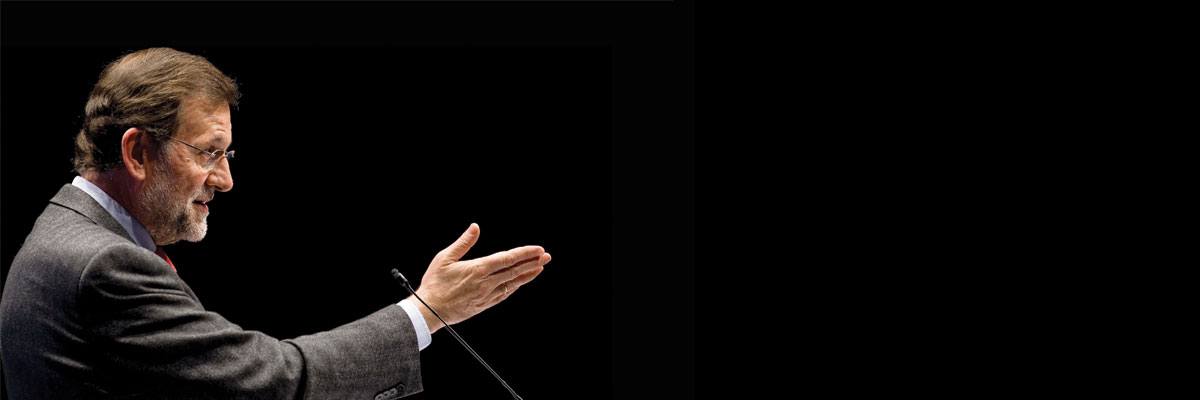GC: Tell me about your role and how you came to be the general counsel – East Asia and Japan at Schneider Electric.
Paul Fredrick (PF): In 2015, Schneider Electric hired me to handle legal and compliance matters for the East Asia and Japan Zone, which includes 15 countries: Brunei, Cambodia, Indonesia, Japan, Laos, Malaysia, Mongolia, Myanmar, Philippines, Singapore, South Korea, Taiwan, Thailand, Timor-Leste, and Vietnam.
I lead a team of nine lawyers based in six different countries and together we handle all of the deals/transactions/projects for about US$1.8 billion of commercial operations in our 15 countries. We also handle work for various functional departments – credit, customs, finance, HR, import/export, tax – for Schneider Electric entities in our region. Our legal team is focused on being an effective partner with the business units we support.
For the EAJ Zone, I lead the compliance council (comprised of senior management for the Zone) that addresses all of the ethics cases that arise related to the 12,000 employees who work for Schneider Electric in these 15 countries.
From the list of countries that comprise the EAJ Zone, one can see: (i) a wide diversity of laws to understand and comply with; (ii) differing levels of business and economic maturity; and (iii) varied judicial systems with different levels of efficiency and transparency.
GC: How did you come to work in Asia?
PF: In 1995, my law firm in Hawaii seconded me to the legal department of the Tokyo headquarters of ITOCHU Corporation. While there, I handled real estate, corporate and litigation/dispute resolution matters for ITOCHU’s projects in the US. Upon completing that secondment, I joined a Japanese law firm to work on outbound M&A and corporate projects throughout Asia. In 1998, ITOCHU Oil Exploration Company hired me as its first general counsel. After seven years handling the global legal affairs for ITOCHU Oil, I returned to private practice in Tokyo in 2005.
Chevron Corporation hired me in 2008 to work on its LNG and other energy projects in Asia and elsewhere globally. Five and a half of my seven years with Chevron were based in Singapore, handling LNG, oil, power and other projects / transactions throughout the A-P region including in Australia, China, Indonesia, Japan, Korea, Singapore, Taiwan, Thailand and Vietnam, which are many of the same countries I now have responsibility for with Schneider Electric.
Looking back, upon completing law school and a federal court clerkship in Indiana, I had no idea that a significant part of my legal career would involve transactions and projects throughout Asia and elsewhere internationally. I have enjoyed the variety of deals I negotiated and important projects handled over many years now along with the quality lawyers and colleagues I have worked alongside in Singapore, Tokyo and elsewhere.
GC: Did you find it difficult to make that transition?
PF: I was fortunate to have good mentors, both on legal and commercial teams, who helped to teach me how best to be culturally aware of actions in the various countries where I worked. So those lessons were of great value over the years as I negotiated deals and progressed projects in the A-P region and other parts of the world.
Whether working in the US or internationally, it is important to listen well and be able to ‘see between the lines’ to grasp the unspoken parts of a situation in order to understand what is going on in a negotiation or meeting and how to efficiently progress a mutually beneficial conclusion. I am always striving to further improve this skill.
GC: That must be challenging to keep a broad mind, a bit of your brain focused on each country.
PF: Yes, at times it can be. As most GCs will acknowledge, we are only as good as our team enables us to be. So I have worked diligently to empower my nine lawyers to process a large amount of work in their respective countries and to keep me fully informed on all matters that could escalate up and require the attention of legal or commercial management at my level and above.
GC: Schneider Electric is obviously a very big company with a diverse portfolio of interests, is that something that your legal team feels? You must get a really wide variety of work coming across your desk.
PF: Schneider Electric is the global specialist in energy management, energy efficiency solutions and industrial automation. With commercial operations in over 100 countries, Schneider Electric is known worldwide for our electronic products, services, software and solutions.
On a daily basis for the 15 countries in my region, I will spend time on negotiations, drafting / revising agreements, handling compliance issues, advising management on potential litigation / dispute resolution or other issues, conferring with external counsel and various other matters related to board resolutions, corporate governance, IP or global supply chain. Every day is busy and different, but never dull.
I also try to spend some time every week developing or improving ‘plain-English’ template agreements that help to increase efficiency and enable my team and also commercial colleagues to focus on areas of high risk / high value to Schneider Electric.
Throughout the year, our legal team conducts internal seminars to highlight awareness of Schneider Electric policies and guidelines on contracting, compliance / ethics and other issues including:
- anti-bribery / corruption / conflict of interest
- gift and hospitality to customers / government officials
- data privacy and cybersecurity
- effective negotiating / contracting practices
- dawn raids by government officials
Because Schneider Electric has commercial operations in in 100 countries, the legal department strives to have consistency, as much as possible, for the variety of contracts that the company enters into globally.
In the EAJ Zone, we are mindful that contractual arrangements put in place in our 15 countries can have a precedential effect with the same counterparty in other countries. Our legal department has a comprehensive internal database for agreements signed on all strategic accounts. Such database, accessible to our global legal team, helps to ensure there is some uniformity for key provisions related to liability / indemnity, warranties, dispute resolution, and financial or other critical issues.
GC: Does that become difficult to manage? How do you stay on the same page with the international departments?
PF: My team and I always check on: (i) whether Schneider Electric has entered into a similar agreement anywhere globally with the same counterparty; and (ii) if so, then what were the final position on key provisions negotiated / agreed to in that executed contract. Schneider Electric also uses global framework agreements that will establish the key terms & conditions for the contractual relationship and then enables the companies to enter into service / work orders or purchase orders anywhere in the world under such framework agreement. A global framework agreement also helps to streamline the overall negotiations that are required at the local level, which can focus on the specific order to be put in place.
GC: I imagine that would require a very robust contract menagement system.
PF: Yes it does. Schneider Electric has that in place and our lawyers / legal professionals work diligently to ensure the contract management system and other internal databases stay current and inclusive of important contracts we execute around the world. Our global legal team also communicates smoothly and effectively across geographical regions. I am regularly speaking with law colleagues in Australia, India, France, the UK and the US on matters related to compliance, data privacy, insurance, IP protection, trademark and other issues.
GC: What are your thoughts on additive manufacturing?
PF: I emphasise to my team the importance of understanding the business of Schneider Electric and our products, solutions, software and related services. Because my own training/background was not in computers, engineering or in manufacturing, I have made extra effort to learn as much as I can about digitisation, Cloud technology, the Internet-of-Things-enabled system architectures, and lots more involved in our industry. Schneider Electric has an impressive variety of products and systems we manufacture and the related platforms that are interconnected to ensure energy management and automation for our clients. Smart technologies will continue to enable lower overall energy usage in buildings and better environmental sustainability as urbanisation continues in Asia and elsewhere.
Additive manufacturing (AM) and 3D printing are important for Schneider Electric and have been for many years. These technologies allow for significant time and cost savings (up to 90%) along with reduced manufacturing and production times for injection moulds, product prototypes and products/spare parts. Plastic moulds can be done in about a quarter of the time required for an aluminium mould.
Technologies such as AM and 3D will continue to enable our company to reduce time-to-market for the new solutions that Schneider Electric is developing every year. So the innovative use of AM and 3D printing in manufacturing is a key strategy of the ‘Factory of the Future’ that will help Schneider Electric expand our leadership in global energy management and bring more sophisticated products to consumers at a faster rate.
GC: Do you see any issues arising as 3D printing is adopted more widely?
PF: My team and I closely review provisions in every agreement to ensure that the proprietary and confidential intellectual property of Schneider Electric is fully protected. We insist on comprehensive IP provisions in the contracts we prepare and add these same important protective provisions to contracts received from counterparties. Schneider Electric’s subject matter experts for IP, patents and trademarks/copyrights work well with my team.
Robust contractual provisions, however, are only part of a best practice for protecting IP. We also actively monitor and address situations when other entities attempt to produce (via 3D printing or other traditional technologies) or sell counterfeit products in similar packaging that violates local and international laws.
GC: In your experience, has the businesses interest changed as the nature of the manufacturing has changed?
PF: Quality IP provisions have always been important for manufacturing companies such as Schneider Electric. With new and developing technologies, however, our lawyers review and consider even more carefully now about the overall scope of information and materials / schematics, etc. will be protected in an IP provision. The breadth of information and documents available on the Internet has also had some effect also on the scope of IP that companies may be able to fully protect. Thus, competition among manufacturers of electronic and other products will likely continue over the next decade and beyond.
For Schneider Electric and other MNCs who create and manufacture products, as new technologies are developed and existing technologies advance, there will be new and different challenges that arise. Accordingly, our lawyers will continue to be vigilant about how we can best protect the strategic assets of the company.
GC: What are your thoughts on artificial intelligence?
PF: AI is changing the legal profession and that will continue in the coming years. There are so many facets to AI and now governmental agencies in the region are more actively addressing the topic. In June 2018, the Personal Data Protection Commission in Singapore released a discussion paper on AI and personal data, so we continue to review that.
My team and I strive to work efficiently because there is an increasing amount of work while our team remains stable. Thus, we welcome new technologies that might enable us to more effectively process our work. Software or online research tools powered by AI can be useful and their practical benefits will expand further over the next five years.
AI tools that can analyse contractual provisions will save valuable time. There is some lead time required, however, to ensure that the substantive text (about governing law, indemnities, liability caps, warranties, IP protection and more) of what a legal team requires in your own contract is effectively flagged by the AI programme used. For simple documents such as a confidentiality agreement, basic sale & purchase contract, and routine lease or loan agreements, AI software could be useful. Similarly, in litigation / dispute resolution matters or for due diligence on an M&A deal, both of which can involve the review of voluminous files and documents, AI programmes can save significant time by quickly locating / highlighting information on specific key issues.
For negotiations on a complex transaction and for the structuring of project finance on a large deal, my view is that AI is unlikely to assist lawyers too much at this time. For predicting results on litigation, such as personal injury cases, AI is already proving to be a valuable tool for private practice lawyers when advising clients on a likely outcome. Accordingly, law firms and in-house legal departments continue to review the most practical uses for AI and continuing legal education courses now cover AI topics.
GC: Is that something that your team currently uses?
PF: Our legal department has been actively studying a variety of AI tools and how best we can benefit from using them. We want to ensure the basic AI platforms (programmes and software) being considered will work effectively considering the types of negotiations and contract drafting progressed by our lawyers. The smarter / more interactive the platform, then the greater the overall efficiencies and likelihood of use by my legal team.
GC: There is a trend of companies and by extension electrical appliances capturing more data. What are your thoughts on the implications?
PF: Schneider Electric has a wide variety of products, solutions, services and software that improve energy efficiency and help to reduce the overall energy use in office buildings, hospitals, data centres, airports and numerous other locations including at home. On the industrial side, Schneider Electric products and services can reduce energy consumption by up to 25% or more, which translates into significant overall cost savings for the customer. For a platform to support on energy management, various information is collected about how and at what times a building is using its energy. However, this information is always well protected and often the primary control of our customers who have programs in place to safeguard such data.
GC: So suddenly, the business will have all of this data, is that concerning for you as a legal team?
PF: Our lawyers and other management, along with our IT professionals, should always be concerned about: (i) the protection and security of all types of data and how best to prevent a potential breach; and (ii) what corrective actions should a company take when such a breach occurs. As Singapore learned this past summer, when a breach occurred at the Ministry of Health affecting 1.5 million citizens (including the Prime Minister’s records), no computer system is infallible and cybersecurity breaches will happen.
Our legal team makes the best efforts possible to ensure that the contracts we put in place require proper security and protection for all data shared between companies and other information that may be collected somehow from using Schneider Electric products and services. Companies who store data in the Cloud should continue to work to improve their cybersecurity systems in order to mitigate future risks to the extent possible. This is true for Schneider Electric and also other MNCs such as Microsoft and Google (both of which have large operations in Singapore) or social media companies such as Facebook, which recently announced plans to build in Singapore its first data centre in Asia at a cost of over US$1 billion.









